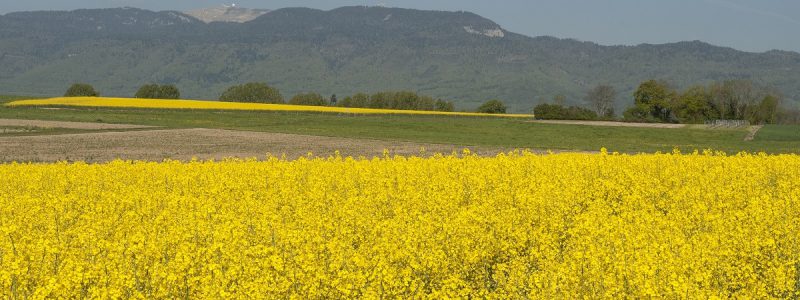
Scope
ESA is specifically involved in three scientific domains:
The functioning of cultivated plants in a field
It covers research on plant functioning and development in the context of a cultivated field (e.g. in a canopy, in a climate-plant-soil continuum, and in a cropping system). Typical topics includes biology of grain and fruit yield and quality traits; plant nutrition and root-soil interactions; plant-disease/insects interactions which are increasingly related to plant physiology. Emphasis is put on the functioning of individual plants in a plant population in various cropping systems (monoculture, intercropping, double cropping, etc.).
In order to better support design, engineering and breeding for new crops and cultivars for improving agricultural production under global warming and climate change, there is an increasing call for interdisciplinary research approaches. The objective here is clearly to bridge agronomists and many researchers who were working on plant and crop physiology and are now more linked to molecular biology, genetics, and bioinformatics.
Experimental work and modelling activities dealing with phenology, photosynthesis, evapotranspiration, architecture, morphogenesis, mineral nutrition, plant competition, sink-source relationships, stress tolerance, and yield formation are key areas. Strong links will be sought between research in genomics, genetics and crop physiology in collaboration with other scientific societies in this field. The main aim is to find ways to merge the huge effort in genomics with knowledge of plant functioning in the field. Systems based approaches will be used to integrate the various disciplines using computer simulation and modelling to uncover mechanisms and knowledge at various levels of organisation. Crop Systems Biology is placed at the cross roads of plant biology/genetics and crop science/agronomy.
The cultivated field as an ecosystem
It concerns the analysis and design of cropping systems at the field scale and beyond.
We consider both long and short term objectives of crop management, integrating perspectives of crop yield and quality, resource management and environmental impacts such as climate change. This encompasses aspects associated with enhancing biodiversity and the management of weeds, pests and diseases as well as the management of water, carbon and plant nutrients. Field scale agroecology also addresses the wider environmental issues associated with minimising pollution, energy and water use, soil erosion, and greenhouse gas emissions. We take an interdisciplinary approach to addressing these issues, incorporating the economic and policy constraints under which farm management operates.
We are keen to encompass a wide range of approaches to field management including both organic and conventional farming. Monocropping, intercropping, permaculture and agroforestry in arable and horticultural situations are all within our scope. Research interests include the production of crops for food and non-food uses, e.g. energy, fibre crops and medicinal herbs. Looking to the future we are interested in how new technological approaches e.g. precision farming can enhance the outcomes of field scale crop management. We consider the field to include both the cropped areas and the field margins and other habitats which surround them.
We encourage collaborative research which addresses different cropping systems across the wide range of environmental and cultural conditions that exist in Europe and in other parts of the world. Across the region we have excellent facilities for field scale research using a variety of sites both on-farm and on research stations. We also have a large number of superb long-term field experiments and we are keen to encourage increased collaboration and effective use of such facilities.
The cropping system in its embedding systems
Researches are centered on the cropping system considered as a combination of a technical system linked to farm structure, objectives and resources, and a set of biophysical systems made of the various fields of the farm territory in a landscape.
We analyse the relationships between the structure and management of the cropping systems and its embedding systems where environmental impacts, multifunctionality and sustainability must be addressed e.g. the landscape for biodiversity, the watershed for water quality, the territory (land with high level of human management) on which an industry collect agricultural products. This includes research on agro-ecosystems functions and services at landscape scale (CO2 and water fluxes, resilience…).
We emphasise the need to define and develop concepts and methods to strengthen the role of Agronomy in the implementation of individual and collective actions at Farm, Regional and Global scales. So, we have to take into account interactions among different spatial, temporal and social scales.
The aim is to develop indicators, models, methods, tools and knowledge to assess and design cropping and farming systems in a multi-scale and multi-criteria approach. Through this perspective, we have to deal with other disciplines, as geography, ecology (manly through landscape ecology) in interdisciplinary or transdisciplinary projects both at regional, national and international levels such as Intergovernemental Panel on Climate Change (IPCC), the Long Term Ecological Research (LTER) network, the Global Land Project (GLP) …
